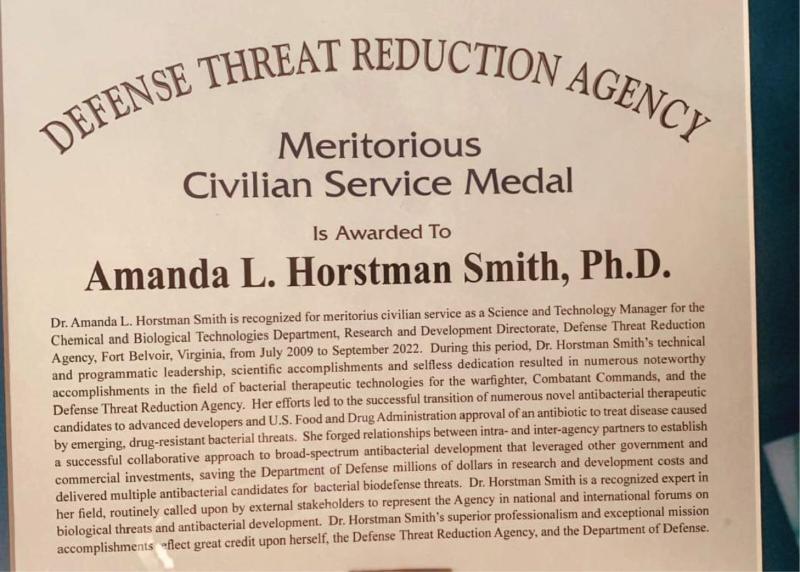
Dr. Amanda Horstman Smith was the first PhD student to join Dr. Meta Kuehn’s lab. But with Dr. Kuehn going on maternity leave soon after joining, she started her research working alone. How did she fare? Amanda was fearless in asking other PIs to teach her the experimental methods she needed to know. And she has continued using this communication skill she perfected at Duke while working at the Defense Threat Reduction Agency (DTRA), and where she received a Meritorious Civilian Award, the highest you can receive as a civilian at a Department of Defense agency.
Amanda ran the anti-bacterial program within DTRA’s Chemical and Biological Defense Program Joint Science and Technology Office, focusing on R&D of early-stage antibiotic development for biodefense, specifically basic research through late phase I and II clinical trials. Her job was in management with an annual budget of approximately $40 million dollars. It sounds like a large amount, but it was spread very thin.
Amanda received the Meritorious Civilian Award because several years ago she recognized that her department alone couldn’t develop the drugs needed to protect the military. New drugs need an FDA indication, and the drug indications her team was developing didn’t match up. So again, Amanda went knocking on doors, this time of other government agencies, to see if they would be willing to collaborate on similar products. Their initial response was less than enthusiastic, but eventually, she convinced them to see that collaborating was a worthwhile effort. Together they figured out how to cut corners without breaking federal contracting rules and how the agencies could match up business processes. By 2020 she had established four joint ventures with the Biomedical Advanced Research and Development Authority (BARDA)—research that the Chemical and Biological Defense Program couldn’t have done on its own because it lacked the resources and expertise. Should all of these drugs achieve FDA approval, she will have saved the Department of Defense over $500 million while convincing other departments that the military could contribute to the greater public health mission.